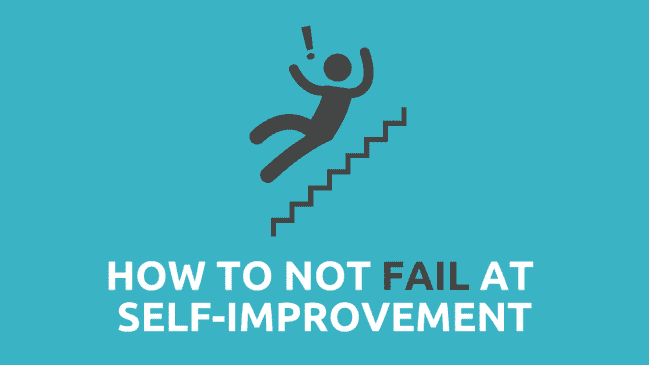Whenever I read books about self-improvement, I noticed that my brain does a really unhelpful thing.
Perhaps I read something like: “Most people come off as unapproachable when they’re nervous”. I automatically think something like: “Yeah my friend Hannah does that all the time”.
Or, I read “It’s important to be able to adjust to the current mode of a conversation”. I think “My friend Robin sucks at that”.
Almost automatically, I think of people around me who make the mistakes I read about.
Here’s where my brain tricks me:
What I DON’T automatically think is: “Wait a minute. In what situations might I be the one who makes this mistake?”
I had an eye opener when I talked to a friend the other day. He was annoyed by people who never asked him questions. But this is the part he wasn’t able to see: In many situations, HE was the one who showed way too little interest in others.
He was probably right that people didn’t ask him questions, but the whole reason they didn’t was probably because he didn’t show enough interest in them in the first place.
Because of this annoying way the brain works, I decided to implement a rule. Whenever I read self-improvement or social skills books, I ask myself the following:
“Is there any situation in life where I, David Morin, might make this mistake?”
It’s not pleasant to review yourself like this, but it takes your rate of improvement from a snail’s pace to that of a cheetah. Many of my biggest improvements have come thanks to darker periods in my life when I saw my flaws in clear daylight. Seeing our flaws can be a powerful motivator to change.
A lesson from the most successful people in life is the following:
Even if it’s painful, look at yourself and see how you can improve.
It makes sense when you think about it: It’s not until we’re aware of our weaknesses that we can improve them.
Here’s a list of 5 common mistakes in social settings
On a scale from 1 to 10 where 1 is not doing it at all and 10 is doing it the most, how would you rate yourself on the following statements?
- Being too energetic or to calm in relation to the others in the conversation
- Interrupting someone because you really want to say that thing that came up in your mind
- Talking more about things that interest you rather than what you know is interesting for everyone in the conversation.
- Disagreeing with people as a habit
- Starting conversations with people by complaining or bringing up a negative subject
The mistakes above are just a few mistakes, but when we do them, they make us less attractive to be around and creates a subconscious divide between others and us.
Did you learn something interesting from the exercise? I’m excited to know in the comments!

I do #2 quite often, but that is usually because I know that if I wait until a pause in the conversation (this is usually in group settings) the subject will be completely different by the time I can say anything.
I also do not ask questions very often but I think that is more because I personally do not like being asked questions and I don’t want to come off as being nosy.
Yeah, I was thinking of one-on-one conversations when I wrote #2, group conversations are different and it CAN be more okay to interrupt there (but it always depends from case to case). But your self-awareness seems very good, so I bet you do it the right way, because most people who interrupt “badly” does not even understand that they interrupt.
David!
How did you know all my introverted strategies! ?
Great post.
Haha <3 Thanks Alexandra!